Special Report
18 Best Deterrents to Protect Your Home From Burglars
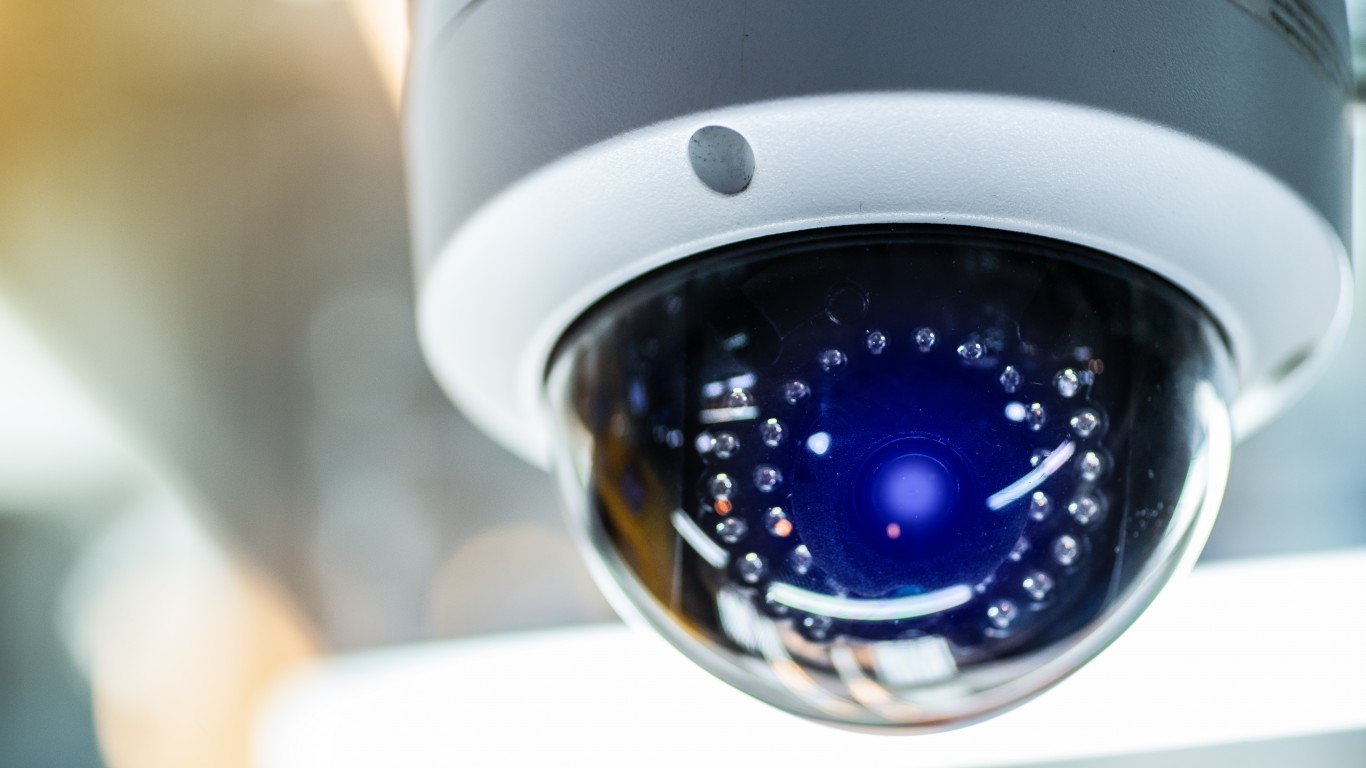
Published:

Nobody wants to be the victim of a crime. More particularly, nobody wants to be the victim of a crime in their home, the place where they want to feel safe and secure whatever is going on in the world.
24/7 Tempo has created a list of the biggest deterrents for burglars, using data from insurance comparison company Confused.com. (These are the American cities with the lowest burglary rates.)
A big deterrent for burglars is a CCTV (closed-circuit television) camera. Having such a camera means that homeowners and business proprietors are serious about security, that the burglar may be caught in the act, and/or that there may be recorded evidence regarding his or her appearance and modus operandi. According to a survey by the Co-op Insurance, which interviewed 12 former burglars, CCTV cameras were the number one deterrent to breaking into a property.
The sound of a barking dog also is a major deterrent. That dog may be a watchdog, or a guard dog, or even an attack dog. No burglar wants to take a chance that there’s a Rottweiler or Bullmastiff with a name like Savage or Voldemort waiting for him on the other side of the wall or door.
And on that subject, strong, heavy doors send the signal that owners take security seriously and want to make life as hard as possible for the bad guys.
A turned-on TV can thwart would-be thieves. That either means somebody’s home or may be. A lot of burglaries are crimes of opportunity. The burglars are looking for easy pickings and don’t want to tangle with anybody. Locked UPVC windows make it harder to commit the crime.
Click here to see the 18 best deterrents to protect your home from burglars
To determine the biggest deterrent for burglars, 24/7 Tempo reviewed the report “Dogs and home insurance: what you need to know” from insurance comparison company Confused.com. Deterrents were ranked based on a survey of former burglars as to what would be most likely to stop them from burglarizing a house.
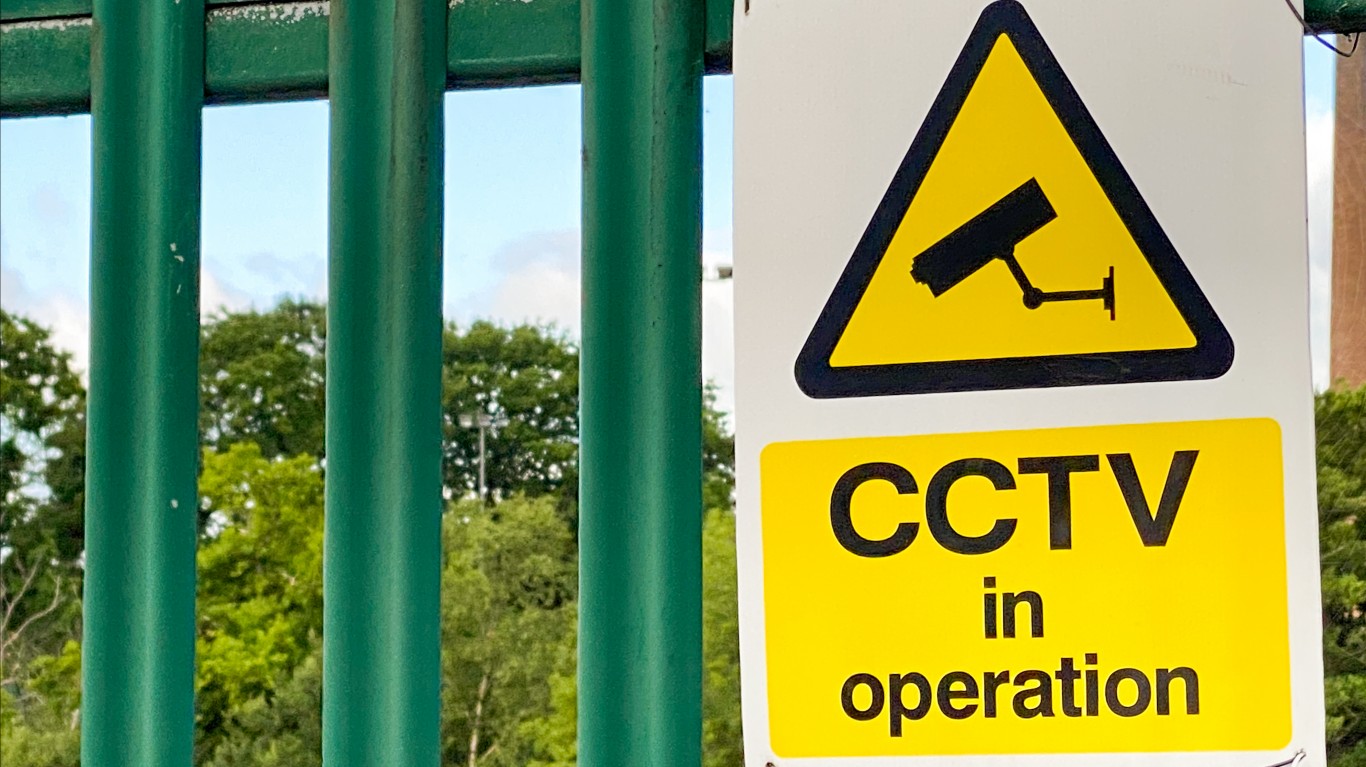
1. Signs and stickers
Burglar deterrent signs, such as those saying “CCTV in operation,” are inexpensive and easy to set up on the lawn or by the front door. Stickers and signs may give burglars pause and they might move on to another house.
[in-text-ad]
2. Steel bars
Steel bars on a home’s doors or windows tell potential intruders that all entrances to the house are strong and secure. Burglars do not like spending time trying to pry open doors and windows because the longer they remain on a property, the chances rise of them getting caught.
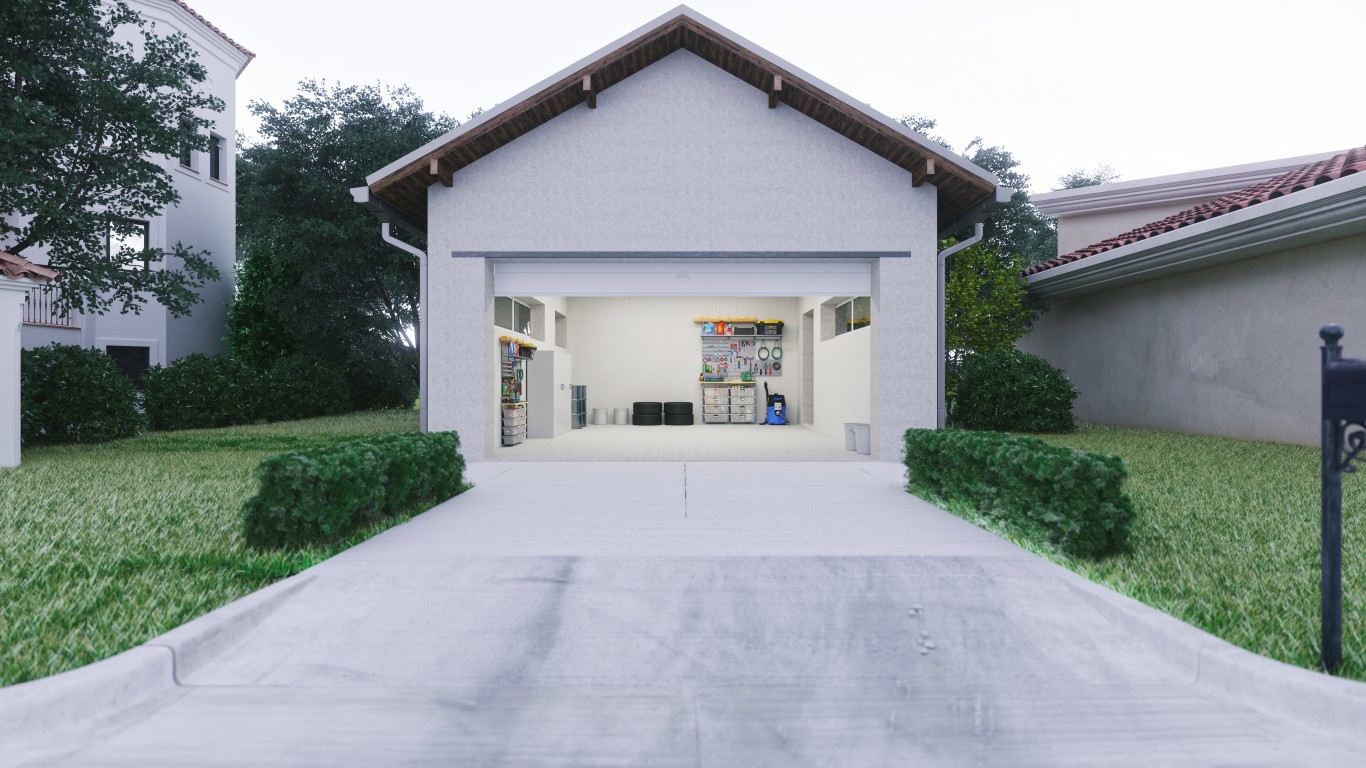
3. Secure the garage
The garage is among the more vulnerable areas of a home and should be a security focus. Garage doors are usually easier to break into than front or side doors that have deadbolts. If the garage is connected to the home, this can provide quick and easy access to the rest of the house. Homeowners also should consider installing shatter-proofing on garage windows.
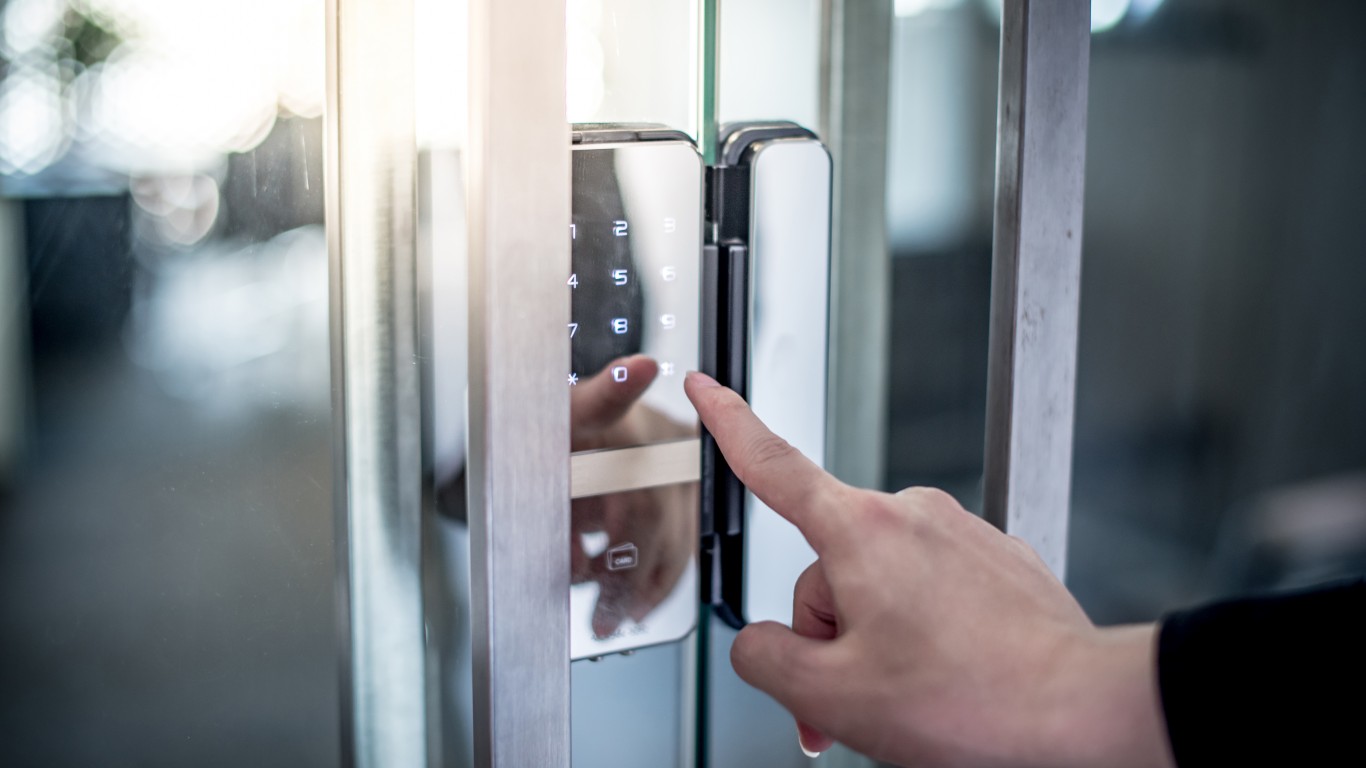
4. Smart locks
Smart locks, a feature of smart technology, can be used to secure a home. They work like standard door locks, however, they can be monitored remotely with a smart device, Alexa or Google Assistant. This enables a homeowner to see from their phone or computer whether or not a door is open or shut. You can even use them to lock a door if you have forgotten to do so. Some smart locks are also often fitted with alarm systems that can activate if someone forces entry.
[in-text-ad-2]

5. Get friendly with neighbors
Getting to know the people you live next door to is good for home security. Neighbors that you know are much more likely to keep an eye on your property and act if they see suspicious activity.
If you go away, a trusted neighbor you can let into your house also can provide extra protection.
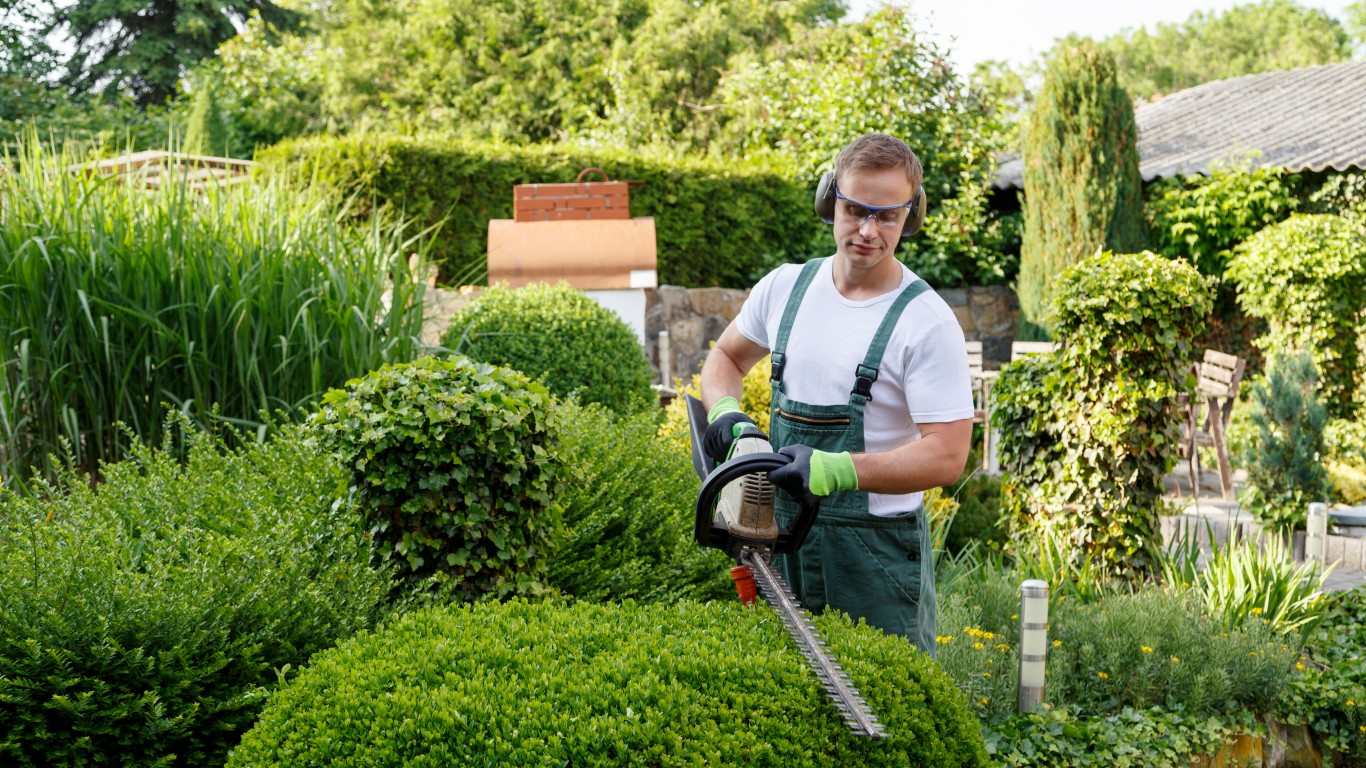
6. Open spaces around home
The more covered areas around a home, the more protection you provide to burglars. It’s important to keep the area around the house as clear as possible, and give thieves fewer places to hide. Homeowners should cut back bushes and hedges near windows and doors.
[in-text-ad]
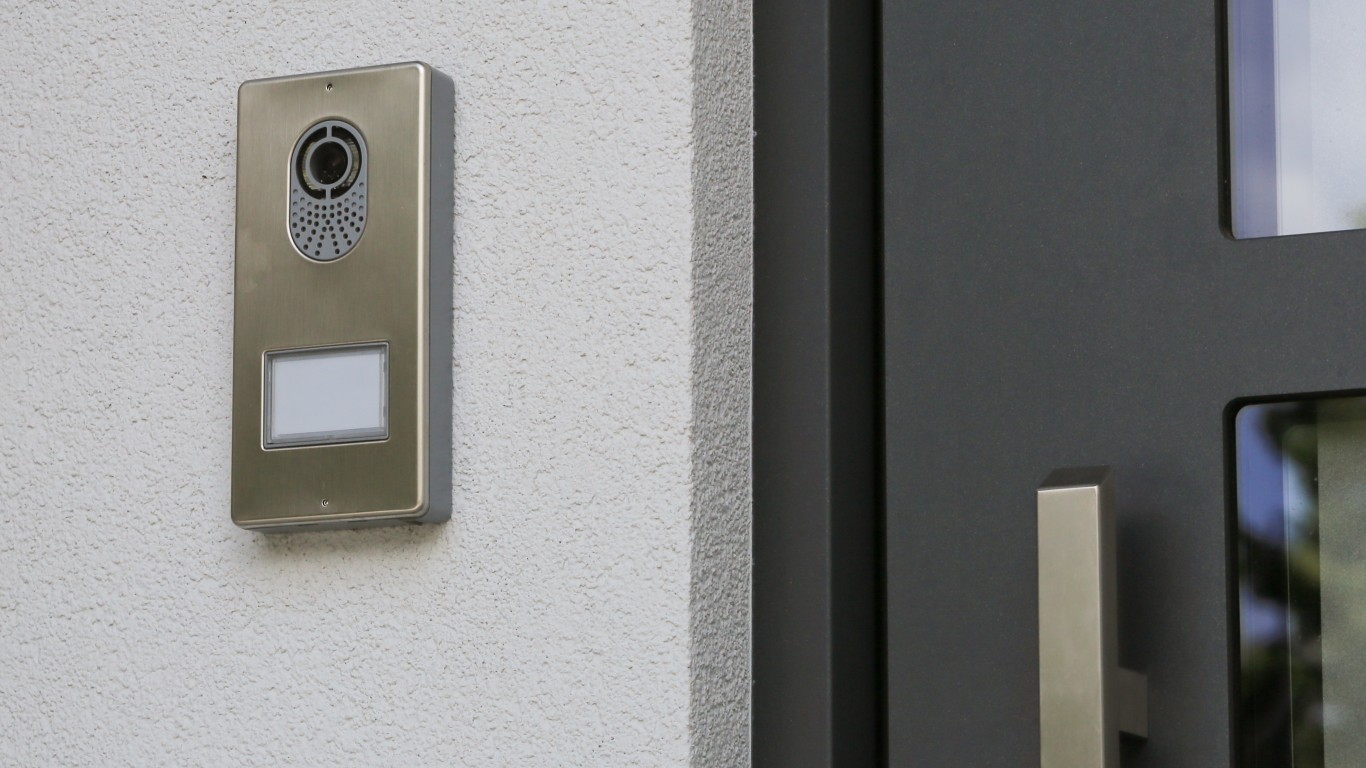
7. Doorbell cameras
Many burglars will try to get into a property via the front door because approaching a front door is less suspicious than creeping around the side of a building. The latest video surveillance technology in doorbell cameras allows homeowners to monitor who approaches the front door from a smartphone.
Some apps will even alert the homeowner when someone is approaching the door with motion detection and facial recognition. If a burglar does try to break in through the front door, you can record this or call the police.
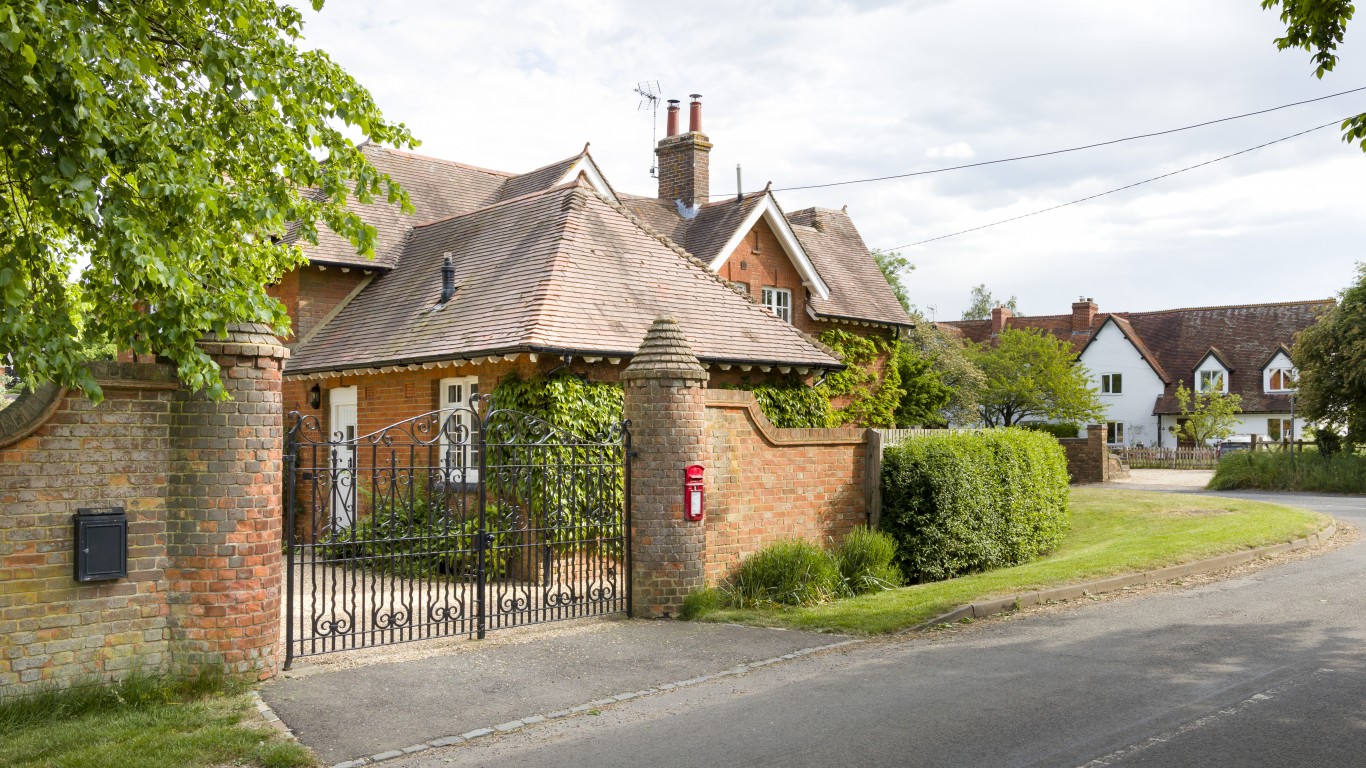
8. Gates outside property
Installing security doors and gates may not be a solution to thwart burglars for every property owner, but it can make a home harder to access. Scaling security gates makes a burglar obvious and puts them at greater risk of being spotted. Also, gates make casing a house difficult for burglars.
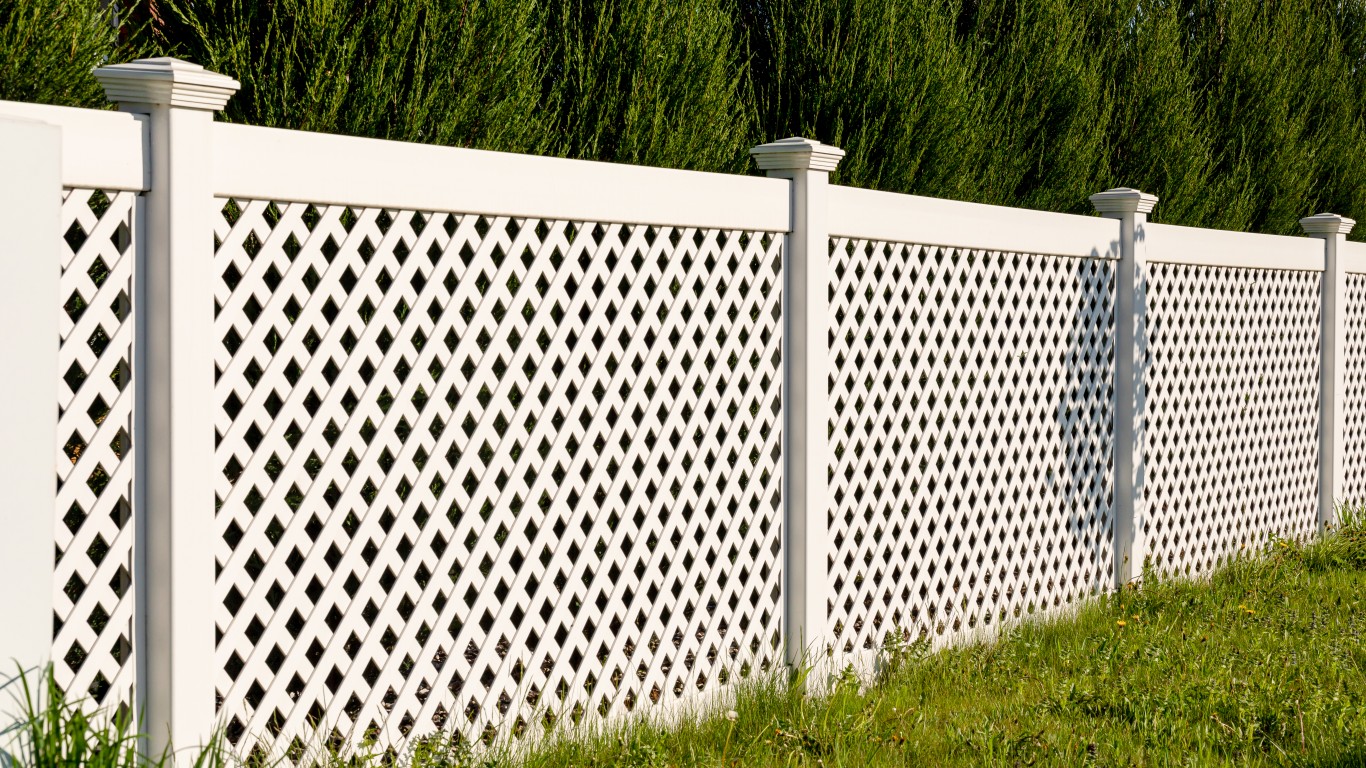
9. Fences around property
Fences, especially with spikes or thorny bushes, can stop burglars climbing over fences. Homeowners may even use an electric privacy security fence as a deterrent to burglar-proof the backyard, garden, or driveway. It is suggested to put up visible warning signs on the fence, warning people about the danger of the electric fences.
Best to keep in mind the proverb attributed to Ben Franklin: “Love thy neighbor, yet don’t pull down your hedge.”
[in-text-ad-2]
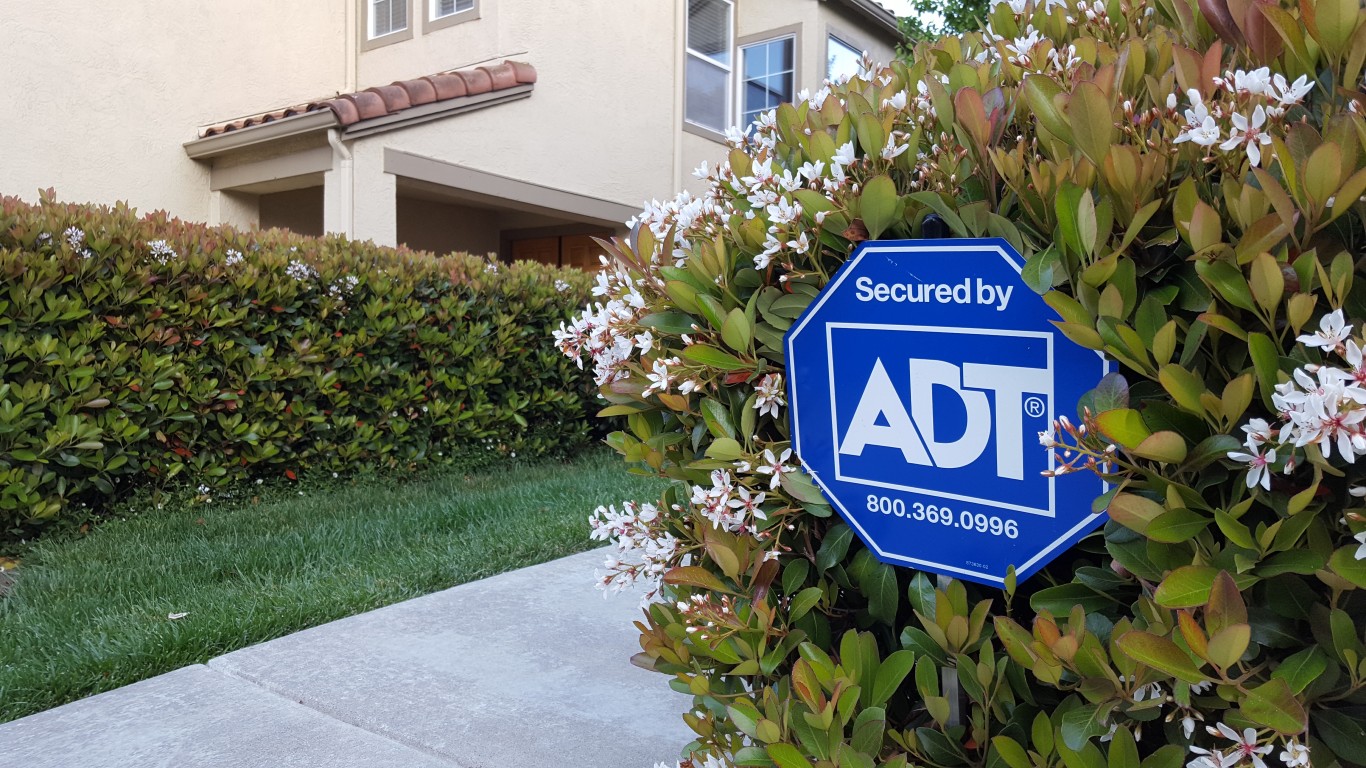
10. Alarm system
A home alarm system is necessary if you are serious about home security. Homes without security systems are 300% more likely to be broken into than homes with them.
Home systems can include security cameras and recording; door and window monitoring systems; security lights; alarm systems; a security sign; and emergency service call-outs.
This means a homeowner can monitor a home’s security system from one place. Some systems also offer a remote monitoring service.
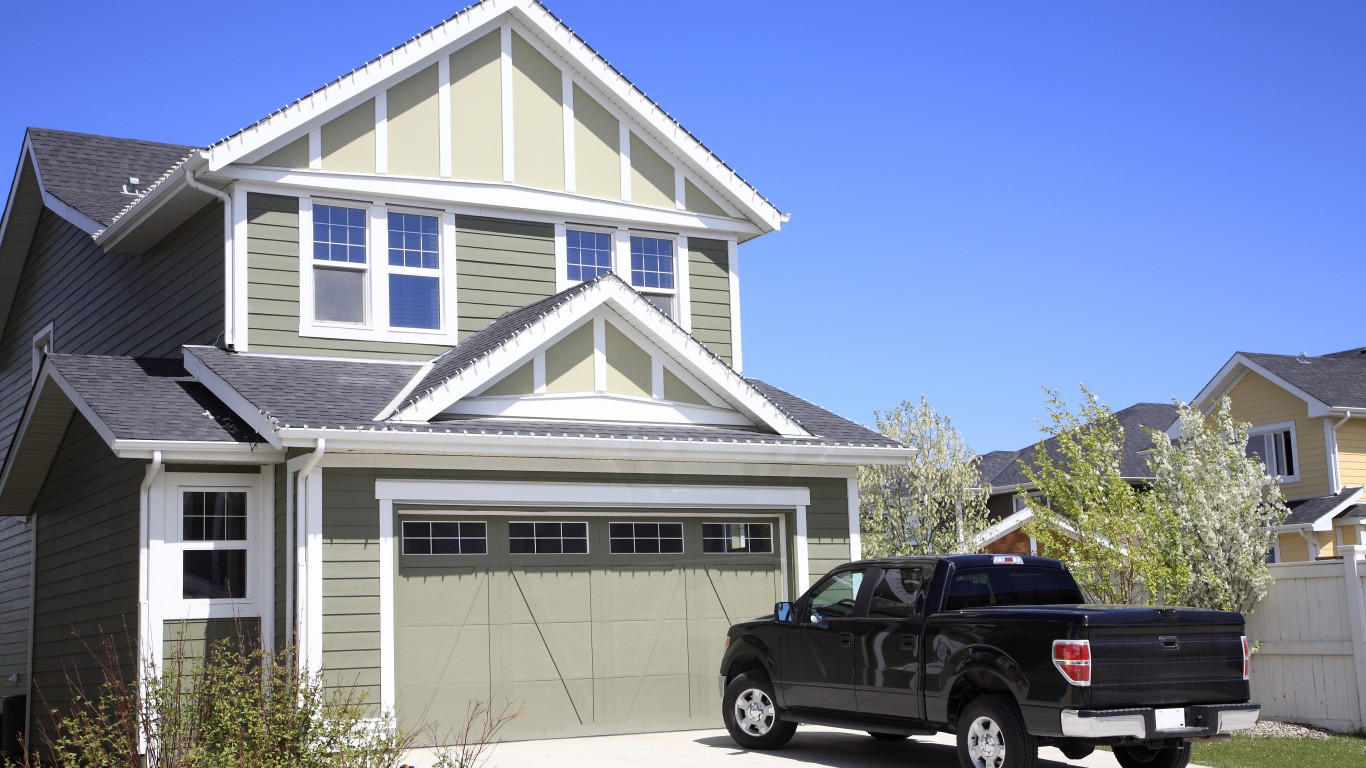
11. Cars in driveway
Leaving one’s car in the driveway so it looks like someone is at home is a way to deter thieves. The more cars in the driveway, the better the deterrent.
[in-text-ad]
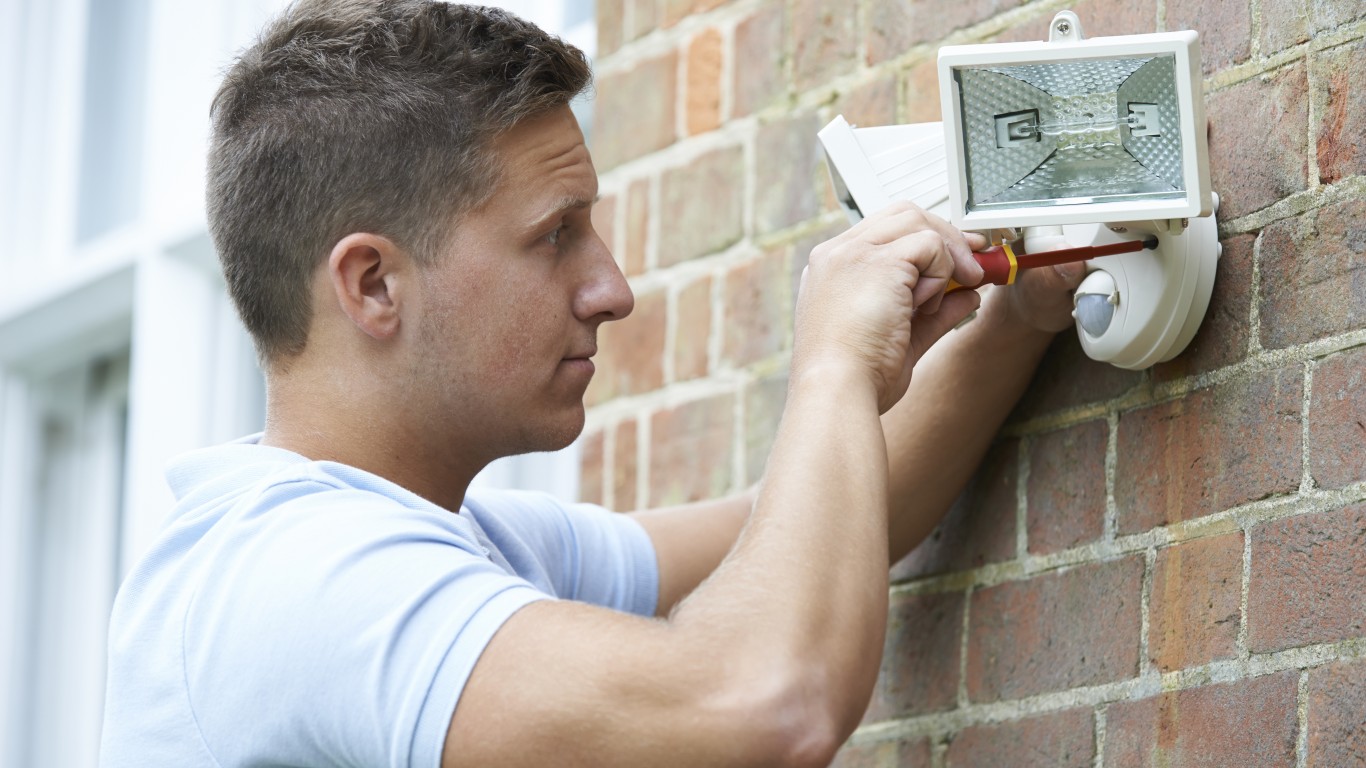
12. Motion-activated security lights
To thwart burglars at night, lighting is key. In particular, motion-sensor lighting can be an effective way to startle burglars nearing a home. Motion-sensor lighting also is helpful inside the home as it alerts homeowners to movement outside.
It’s a good idea to set up lighting and motion sensors along paths near the home.
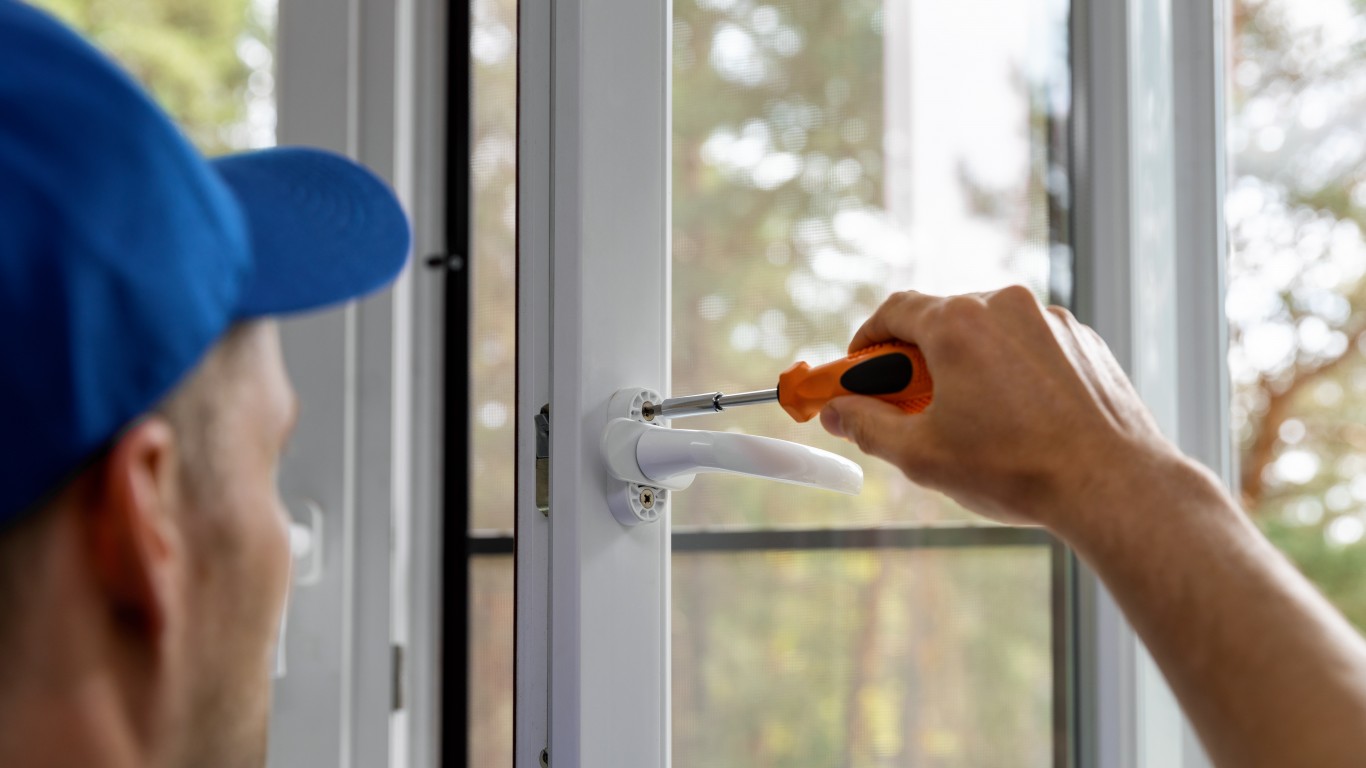
13. Locked UPVC windows
Just like modern doors, modern windows pose a real obstacle to any burglars. They can’t be moved from their frames, and when locked, are too strong to break through without a lot of effort.
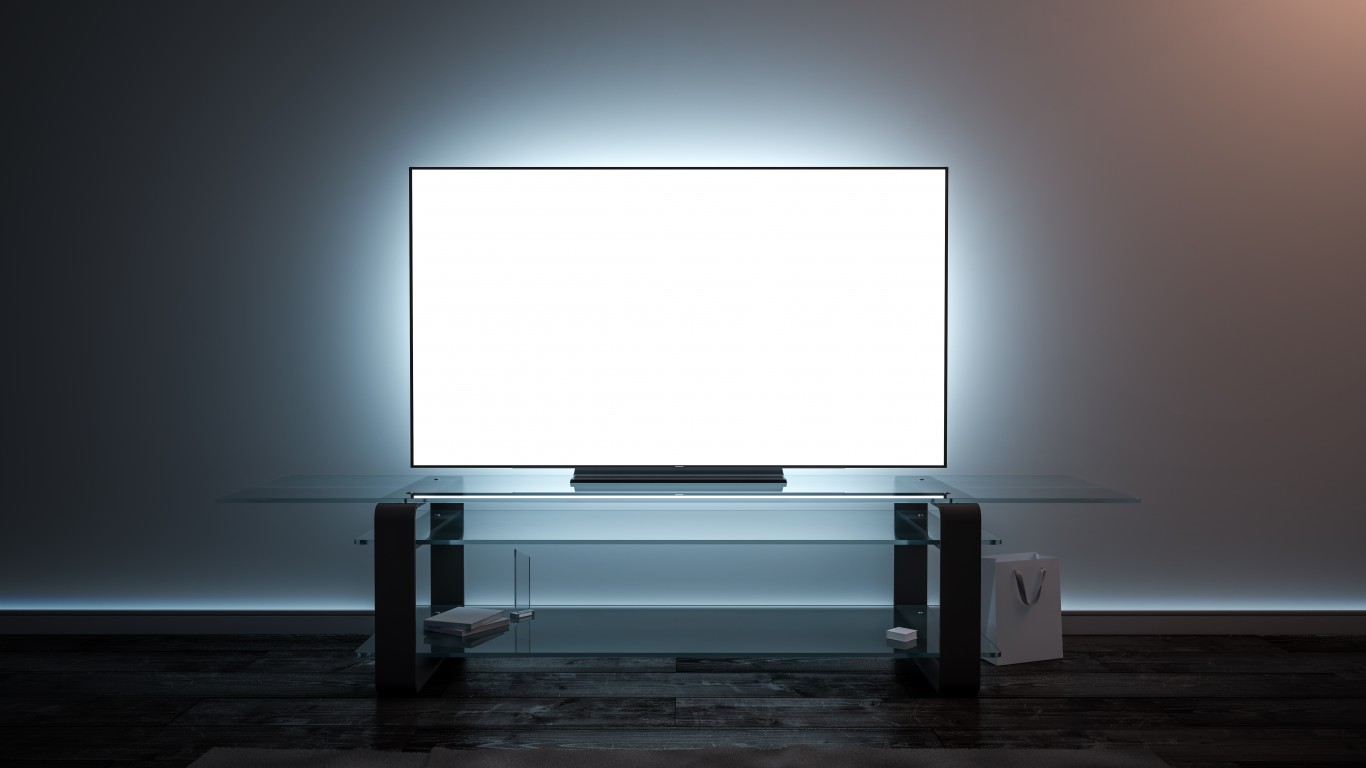
14. Bogus TV device
Another tactic is fake TV burglar deterrent devices that can simulate television lights, making it appear like someone is watching TV at home. When the burglar deterrent TV simulator is turned on with sound, only the LED lights blinking through the curtains can be seen, instead of the actual television picture.
[in-text-ad-2]
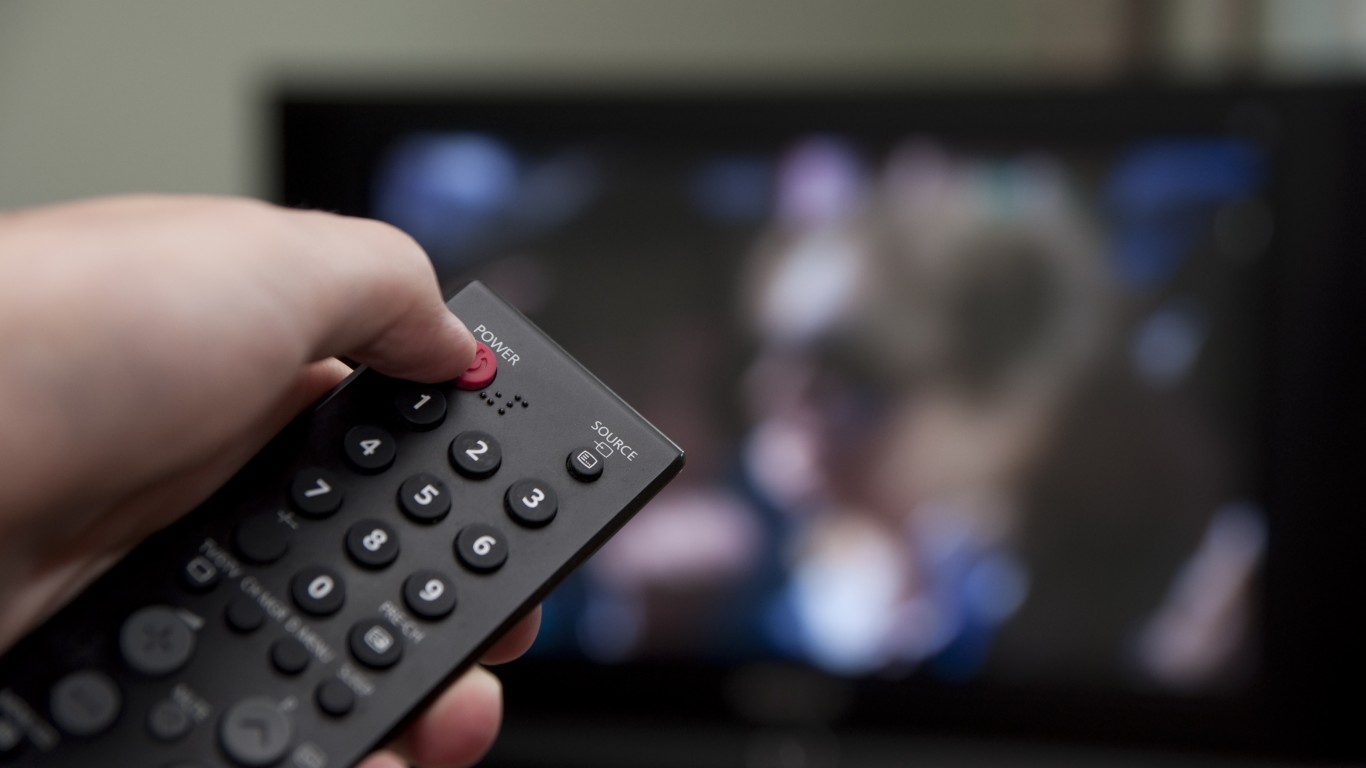
15. A turned-on TV
While leaving your TV on overnight isn’t advisable, if thieves hear it during the evening it’s a good sign that you’re home. A quiet, dark house is a lot more inviting than one that looks active.
Another tactic is fake TV burglar deterrent devices that can simulate television lights, making it appear like someone is watching TV at home. When the burglar deterrent TV simulator is turned on with sound, only the LED lights blinking through the curtains can be seen, instead of the actual television picture.
16. Strong, heavy doors
Modern doors are much harder to break down than older varieties. They’re built to survive any attempt at kicking them in, and often come with multi-locking systems that are much more challenging to bypass.
[in-text-ad]

17. Sound of a barking dog
Dogs are a big deterrent for burglars. Hearing one bark as they try to break in should stop most of them in their tracks, as they don’t want to risk getting injured. Dog barks also bring attention.
Putting up “Beware of the Dog” signs when you don’t have a dog can be enough to ward off burglars. This will generally discourage only opportunistic thieves. If a burglar is watching a home they’ll eventually find out whether or not you have a dog.

18. CCTV Camera
According to the Office of National Statistics, 49% of all burglaries happen during the night. That makes CCTV all the more important. This can capture anyone attempting to break in, while the sight of cameras alone may be enough to put most criminals off.
There are a range of systems that can be installed, including ones that are in your doorbell and can snag would-be thieves unaware. Having cameras mounted around your exterior can deter burglars from entering your home.
This immediately makes it look as though burgling your home will be more of a risk. After all, the chances of a burglar getting caught, identified, and convicted are much higher when you involve a security camera system.
Burglars are much more likely to target homes without outdoor security cameras than those with them.
It is suggested that homeowners mount night vision security cameras around the outside of the house. These should cover areas that people have to pass through before approaching the building itself.
Are you ready for retirement? Planning for retirement can be overwhelming, that’s why it could be a good idea to speak to a fiduciary financial advisor about your goals today.
Start by taking this retirement quiz right here from SmartAsset that will match you with up to 3 financial advisors that serve your area and beyond in 5 minutes. Smart Asset is now matching over 50,000 people a month.
Click here now to get started.
Thank you for reading! Have some feedback for us?
Contact the 24/7 Wall St. editorial team.